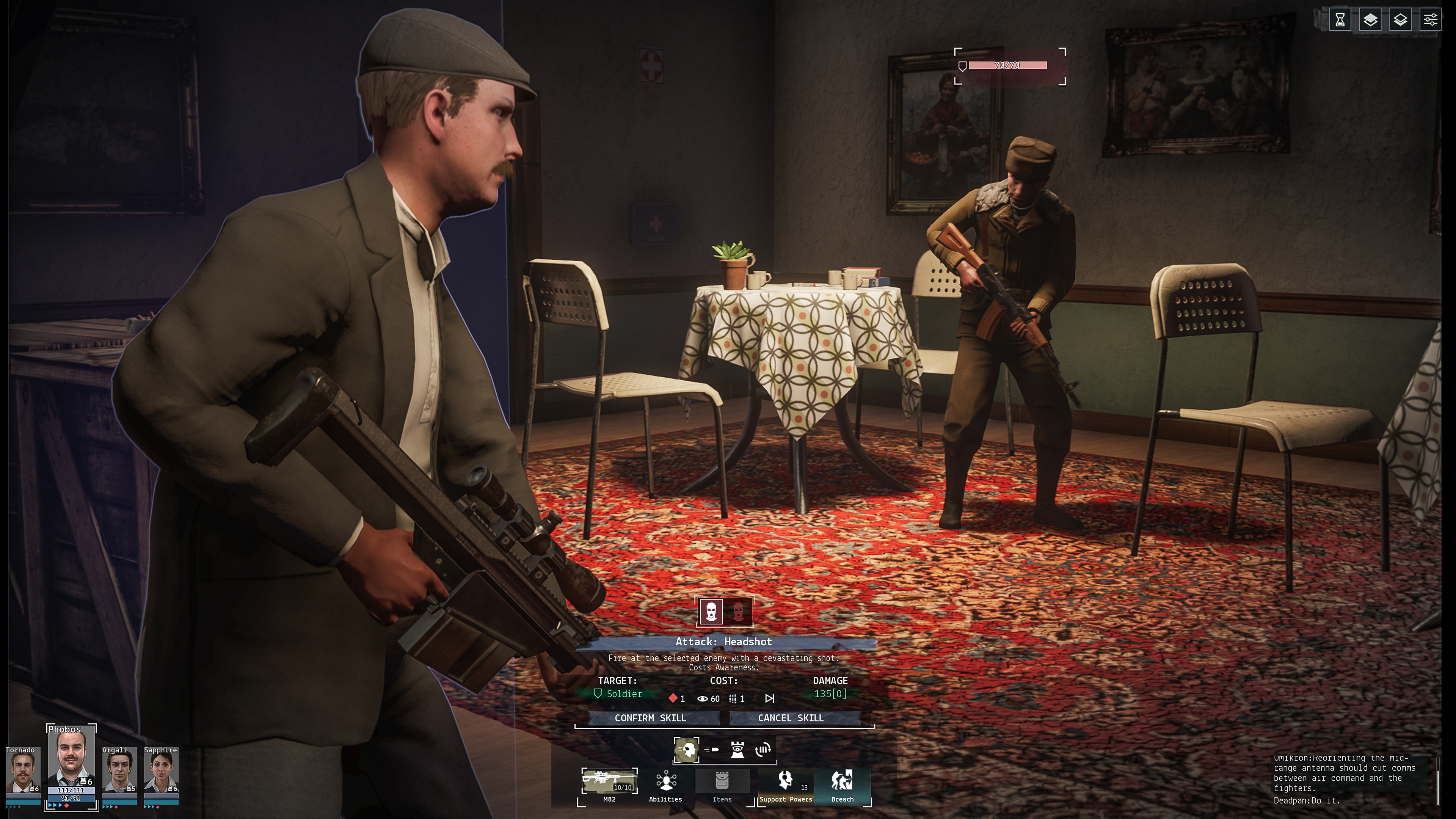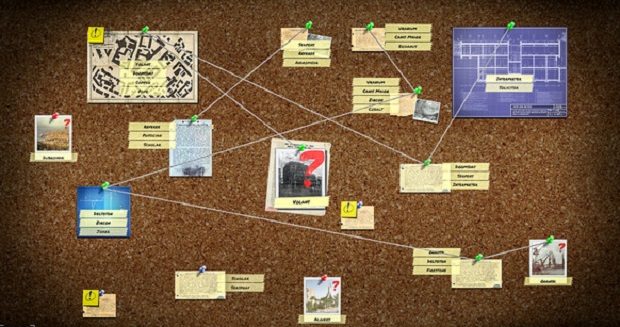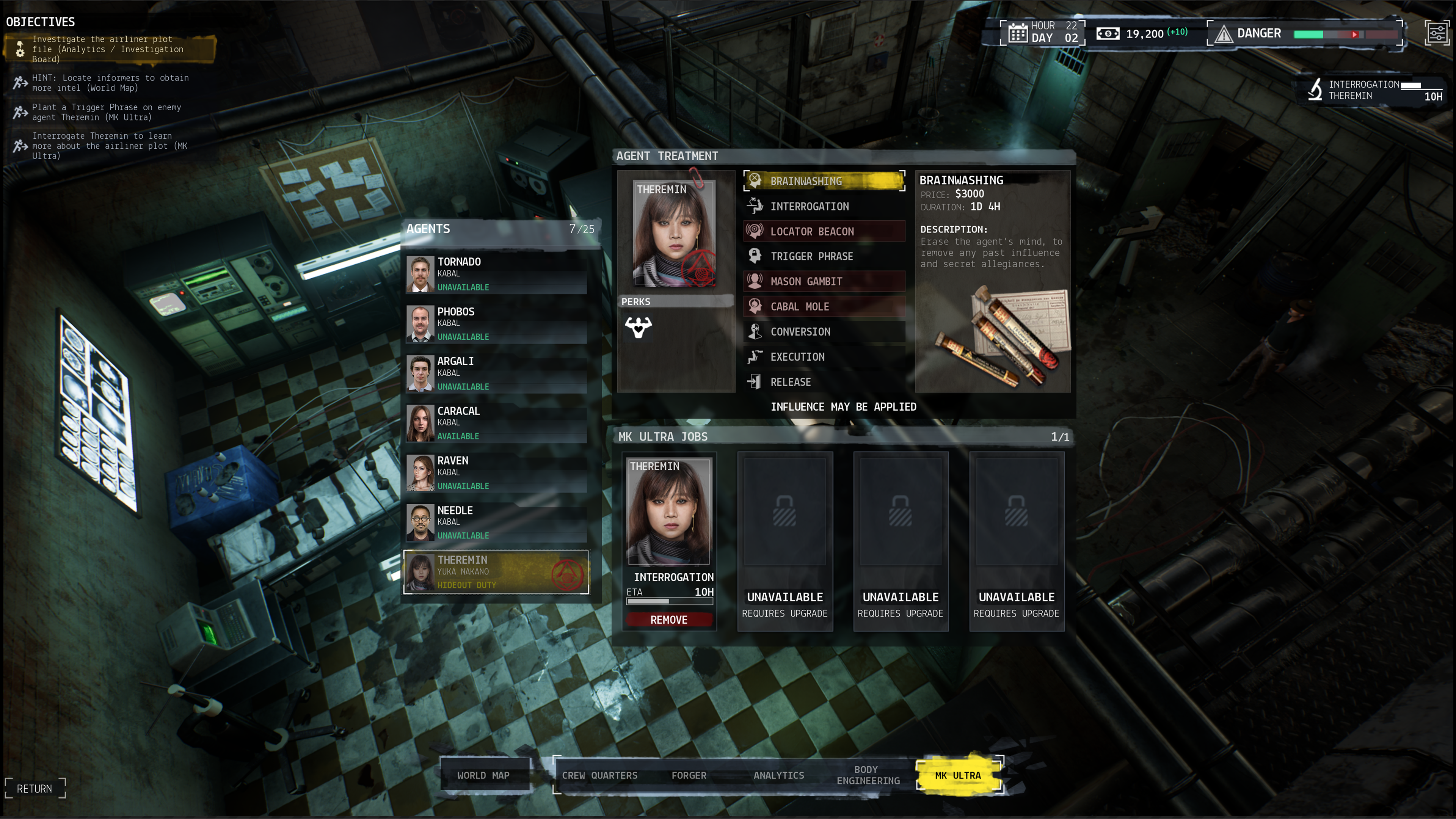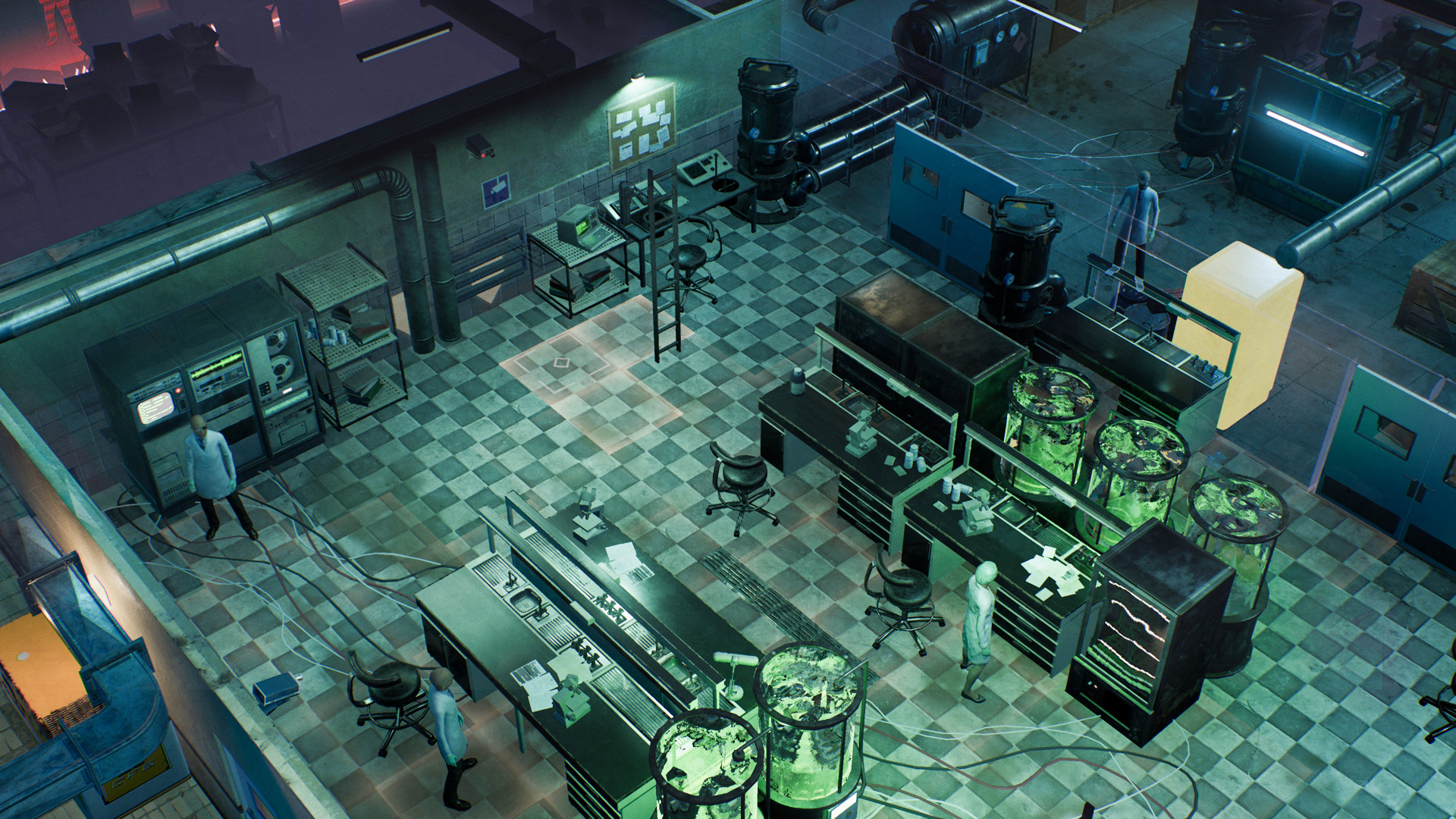Brainwash bad guys and build a conspiracy wall in this secret agent strategy game
Phantom Doctrine literally has a corkboard with yarn-connected photos and notes that you use to complete the game.

In 1983, the Soviet Union shot down Korean Air Lines Flight 007, killing 269 people headed to Seoul from New York. After stopping to refuel in Alaska, crew error put the airliner on a flightpath hundreds of miles off course that crossed into restricted Soviet airspace, where an American military plane had been poking around earlier that day. Mistakes and Cold War tension resulted in a tragic loss of life, stoking further paranoia. But as anyone with an uncle who’s in one too many doomsday prepper Facebook groups knows, not everyone is ready to believe the official story.
Phantom Doctrine is an XCOM-style, turn-based strategy game that pins the Cold War not on the struggle between the USA and USSR, but on a malevolent, shadowy organization pulling the strings behind the scenes and above everyone’s head. It’s a fantastical alternate history brimming with conspiracy and (actually functional) MK Ultra mind-control. “There are no contradictions with actual history. We just give it a different spin,” lead designer Kacper Szymczak explains. Phantom Doctrine starts you as a CIA or KGB agent, but after you catch onto the conspiracy, you go rogue, forming your own agency in opposition to the global conspiracy.
You can also sift through collected intel at the hideout, clicking and dragging to string it together like Charlie’s mailroom conspiracy in It’s Always Sunny in Philadelphia.
Your work is distilled down to two main pillars: planning operations from your outfit’s secret hideout and actually running turn-based tactical ops. There’s a lot to do at the hideout, most of which I didn’t even get to see in a two hour demo, but one cool bit involves assigning new identities and documents to your agents once their heat level gets too high.
Otherwise, the conspiracy can discover your operatives and potentially kidnap them before sending them back to you as a double agent (without your knowledge), or assassinate them outright. While these new passports and character portraits are more of an aesthetic choice currently, Szymczak is “on the fence” about an agent's’ identity or nationality having additional gameplay implications. It’s “not that we don’t have enough features,” Szymczak said. “Everyone’s like, ‘why do we have so much fucking stuff.’”

He has a point. I barely got a grasp of all the options available in the MK Ultra facility—from interrogating captured agents to gain intel to programming them to flip sides with the utterance of a code word—and it’s just one facet of the homebase operation. You can also train your agents, or augment them with 30 different compounds (drugs), some of which block the others. There’s a secret sequence of 11 compounds that will lead to the ideal super soldier; Szymczak has it written on a post-in note on his desk. “If I lose it, good luck, internet.”
You can also sift through collected intel at the hideout, going through redacted documents and pinning evidence to a cork board, clicking and dragging to string it together like Charlie’s mailroom conspiracy in It’s Always Sunny in Philadelphia. While you can assign an agent to solve these clues for you, doing it yourself frees up vital resources, and makes you feel like a detective.

Phantom Doctrine skips the RNG lets you put a shotgun in an alien’s face and miss.
From the world map screen, you can advance time as red blips start littering the screen. Say a blip pops up in Stockholm. You can send out an agent to passively investigate it, factoring in travel time from wherever your hideout is located. You can stake it out to identify enemy agents, or try and infiltrate the cell to gain intel. Once an enemy cell is up and running, it can raise the threat level to your agency, or throttle the amount of money you have coming in. At that point you can pack up and move your hideout, or attack the enemy's.
Keep up to date with the most important stories and the best deals, as picked by the PC Gamer team.
What you choose to do will depend a lot on your funds, available operatives, and playstyle. If you have spare time, for example, you can send an agent in first for recon, which will grant you some benefit when you assault the enemy facility. In the demo I played, this meant being able to disguise one of my four infiltrating agents, allowing them unfettered access to buildings that my other agents would be caught trespassing in. Surveillance cameras, too, were no longer an issue, and my disguised agent was able to find the CCTV room and shut the cameras down, allowing my other agents to more easily sneak through out-of-bounds areas. But having a disguised agent slinking around could also abet a more ruthless series of enemy executions with silenced weapons, rather than non-lethal stealth.

As I snuck to the evacuation site—you have a limited number of turns before your ride home is compromised and you have to wait for a new one—I entered combat just to give it a shot and felt at home with the XCOM-style emphasis on cover, and was thankful that Phantom Doctrine skips the RNG lets you put a shotgun in an alien’s face and miss. The game is designed to let you go in guns blazing, if that’s your speed. If you can spare the agents, you can also add support units like snipers and grenadiers waiting to bail you out of disastrous situations.
As Szymczak eloquently put it, there’s “so much fucking stuff” to Phantom Doctrine that it’s tough to guess if it will all work out after just a couple hours of what is an ambitious, 60-hour game. Its two core phases of gameplay might not click, the tactical phase could give way to monotony bereft of ever-increasing alien types and chunky armored soldiers, or it could get mired in its own complexity. But its coupling of the best bits of XCOM and Klei’s underrated Invisible Inc. with a pulpy, ripped-from-the-headlines alt history should at least be on your radar when it launches in 2018.

